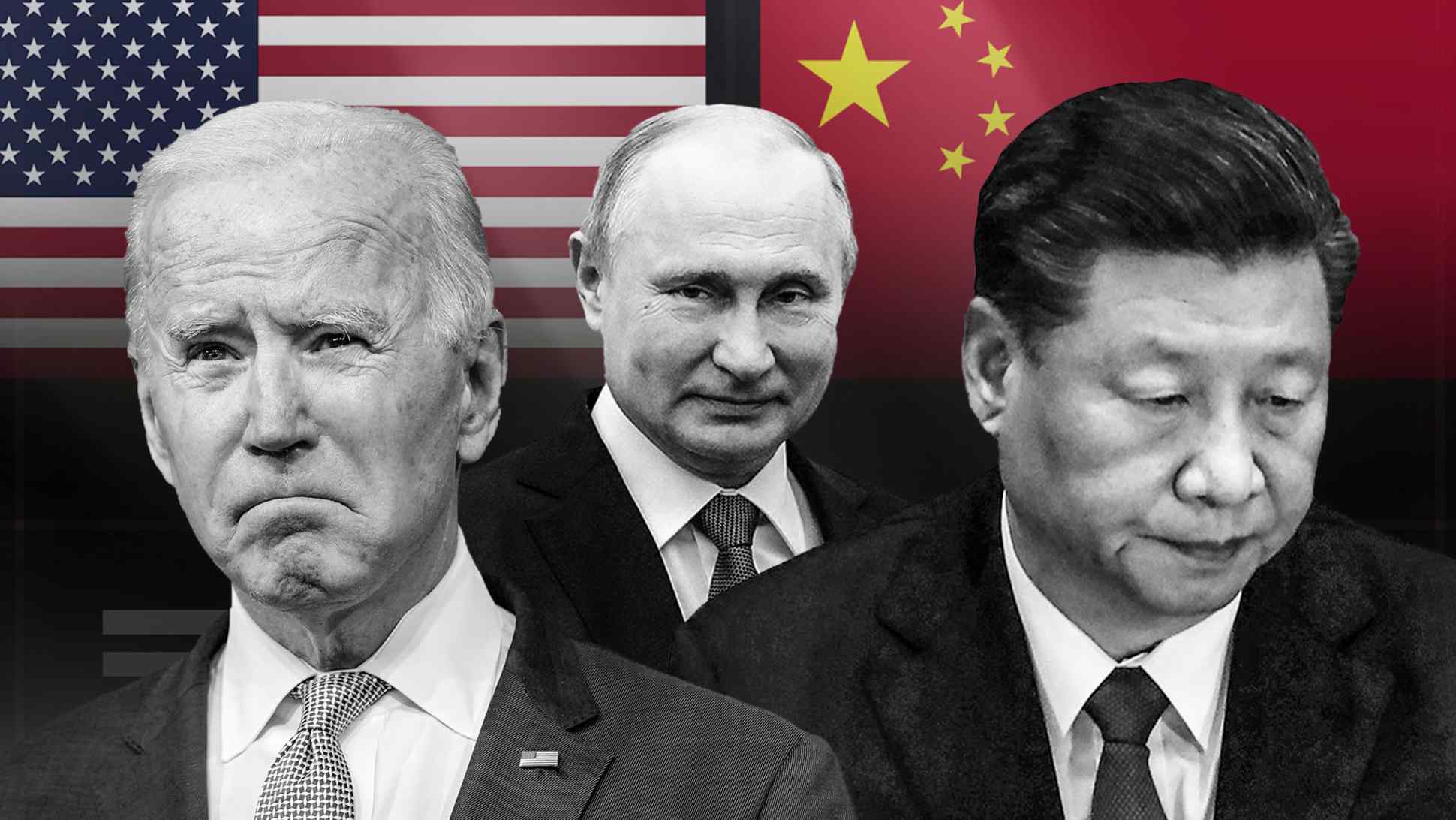Diaco Hosseini in an interview with the site of Strategic Council on Foreign Relations referred to the threats and rhetoric war between the U.S. from one side and China and Russia on the other side and also imposition of new sanctions by Washington against the two countries and stated:” the policy that was practiced during Obama has become almost final at present circumstance. Now, China and Russia have been recognized as two powers challenging the U.S. in international order. They have common characteristics like authoritarianism and making effort to reverse the present international order led by the U.S.
Having referred to spiraling tension between the U.S. and Russia as well as China in Eastern Europe and South China Sea added:” Russia is a regional challenger for the U.S. although having nuclear arms and enjoying a relative strong army in Europe give broader aspects to the U.S. but China is considered to be a global challenge for the U.S. for which strategically the starting point is South China Sea.
Having stated that the U.S. considers China as the only competitor who can combine all economic, political, military and technologic power instruments and make a durable challenge for the existing international order, the analyst of international affairs continued:” Challenge between the U.S. and China will not confine to this region alone, because due to renovation of her nuclear arms, upgrading her naval fleet, new technologies as well as cyber technologies, being present in space China is rapidly advancing and may even overtake the U.S. in some areas in very near future”.
Having stated that the U.S. competition with Russia and China will form the aspects of future order that the world and the country faces, Hosseini referred to the emphases of Russia and China on the necessity of paying attention to multilateralism in the new world order and said:” we have to understand the essential difference between multilateralism and multipolar world. There may be unipolar world in which multilateralism is well accepted as a prevailing principle while there may be a multipolar world in which the prevailing order is unilateralism”.
He added:” today, what is referred to as gradual global order and structural formation is a multipolar world in which Russia, China and the U.S. and to a lesser degree and with less probability the European Union will play a role. From Chinese as well as Russian point of view, the ideal international order is based on a multipolar world in a way that China and Russia are defined at the same level as the U.S.A. but the U.S. has made lots of efforts to prevent its materialization.
Admitting the End of the U.S. Leadership in a Unipolar World
Having stated that during Obama it was implicitly and during Trump it was explicitly admitted that the era of unipolar world led by the U.S. has come to its end and the country should prepare itself for newly emerged issues, the expert of international affairs explained: “during the two Administrations, two new theories were brought up in the U.S. Based on the first theory the U.S. should make effort to postpone the emergence of a multipolar world and prevent the creation of the new poles that can be a challenge for itself and its allies. This solution was seriously followed up during Trump and these challengers or new poles of power were recognized as the U.S. enemies”.
Hosseini continued:” the second theory which we witnessed during Obama and seems to be restored during Biden is based on the idea that the U.S. should make itself compatible with the new world, to acknowledge the restrictions of its power and to make effort to secure its interests in the new structure as much as possible. In the meantime, continues to assume its leadership over Western countries and democracies”.
Dominance over Taiwan & Ukraine; Turning Point of Russian & Chinese Authority
Having referred to the outcomes of the U.S. cold war style rhetoric against Russia and China, such as shifting geographic concentration in the U.S. foreign policy, increasing attention to Asia Pacific and intensification of competition among regional powers in the Middle East, he spelled out:” the U.S. has well understood that retrieval of influence in former domain of Russia as the big Eurasian power will ultimately reach its climax and turning point when Ukraine comes under Russian dominance. Concerning China too, the move towards becoming the peak of regional hegemony will start when Taiwan comes under Chinese control”.
The expert of international affairs said:” Based on this analysis, the U.S. has focused all its efforts to prevent the victory of China and Russia over Taiwan and Ukraine. In fact, at present circumstance, it seems that Biden Administration tries to preserve the status quo in Ukraine and Taiwan with the least costs without entering into a challenge with Russia and China that may take unknown dimensions”.
U.S. Cold War of Lesser Degree with Russia & China
Hosseini underscored:” at present circumstance we witness a cold war between China and the U.S. and to a lesser degree between Russia and the U.S. It has been long since the war started and it seems that it will continue in future too. They have no desire and no interest to intensify the war; because it may threaten their economic interests and its dimensions are not absolutely ideological that cause to lessen the desire to do it”.
He continued:” despite periodic tensions among these countries, there is a will to settle the disputes. They try to settle the challenges through diplomacy and agreements and to avoid entering into military aspect. However, there is always a possibility that disputes of lesser degree and rhetoric struggles may lead to intensification of competitions and military clashes due to miscalculations and underestimation of the other side’s will to defend the status quo”.










0 Comments